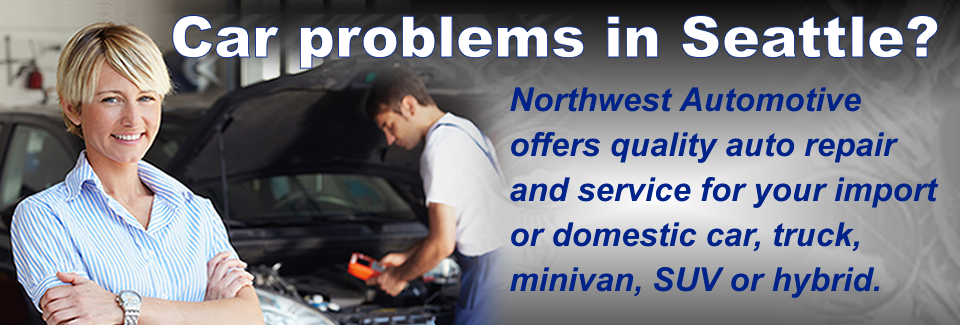 |
Expert Service by Certified Master Technicians |

Sometimes stuff happens. Your worst-case car scenario has come to pass. Your car started making funny noises – loud funny noises – and the engine died and wouldn't start again. You had it towed to the repair shop and the service manager gave you the bad news. The engine would have to be replaced. What's more, it will take everything you had saved for the trip to Cabo, and then some, to pay for it. You have a decision to make.
On one hand, you have to have transportation. Your credit is good. You know you could have a new, or at least a much newer car with the stroke of the pen on loan documents.
On the other hand, the car you have is paid for and you love not having to fork out money for a car payment every month.
So, what do you do? How do you decide, as objectively as possible, whether or not it makes more sense to fix what you've got or buy a new or newer car and start writing a monthly check to the bank again?
There may be several ways to approach that decision, but here's one that's simple and straightforward, and reduces the question to one of dollars and cents. Here's how it works:
Add up the cost of all the repairs you've made on your car over the last 24 months and divide by 24 to come up with an average monthly expense. Then, compare that to the monthly payments of a car you would consider purchasing to replace what you have. If the average monthly repair cost approaches the monthly car payment, you should consider replacement.
Before you make that decision, though, consider this:
The example above is an extreme one. More than likely when you're facing expensive repairs, the situation may not by quite as dire. Your car may begin exhibiting symptoms that are worrisome, but they don't prevent you from driving it.
For example, your transmission seems to be shifting a bit differently. Nothing really drastic, just different. As a prudent precaution, you take the car to a transmission shop for a check-up. You get some mumbo-jumbo about hard parts and soft parts that add up to a very negative prognosis.
Bear in mind that just because a transmission shop tells you it's time for a new transaxle doesn't make it so. Take the initiative and get a second opinion. Find a shop that employs technicians who have more broad-based automotive knowledge and the experience and training to make a more definitive diagnosis. Your bad transaxle could turn out to be nothing more than a bad tire.
You decide who deserves your trust. And one more thing. If you decide an expensive repair is the best decision, be sure to ask the technician who does the repair if his work is backed up by a guarantee that it will fix the problem.
Call today to talk with a certified master technician and to make an appointment in our Lake City Way auto repair shop. Get a professional review, a list of options, and recommendations based on the condition of your car, your transportation needs, and your budget.

12300 Lake City Way NE
Seattle, WA 98125 MAP
206-526-5979
© Copyright 2011 - , Northwest Automotive - All Rights Reserved. Website Design, Hosting and Maintenance by New Tech Web, Inc.